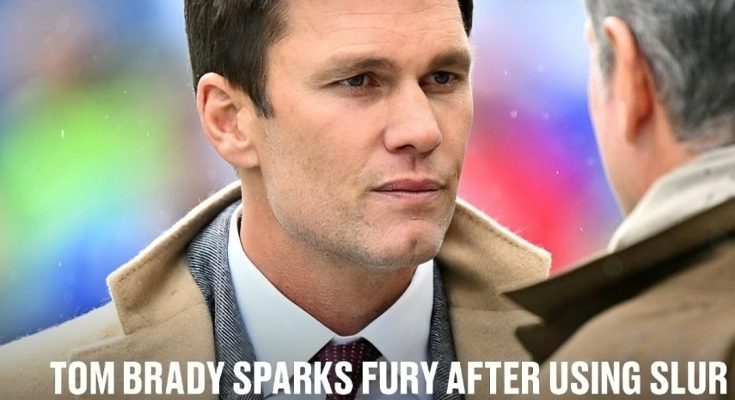NFL legend Tom Brady has found himself at the center of a controversy after using an offensive slur during a live broadcast. The incident has sparked widespread backlash, with viewers and social media users criticizing the former quarterback for his choice of words while discussing a player’s performance. As Brady transitions into his new career as a sports commentator, this misstep raises questions about the impact of language in media and the importance of sensitivity in live broadcasting.
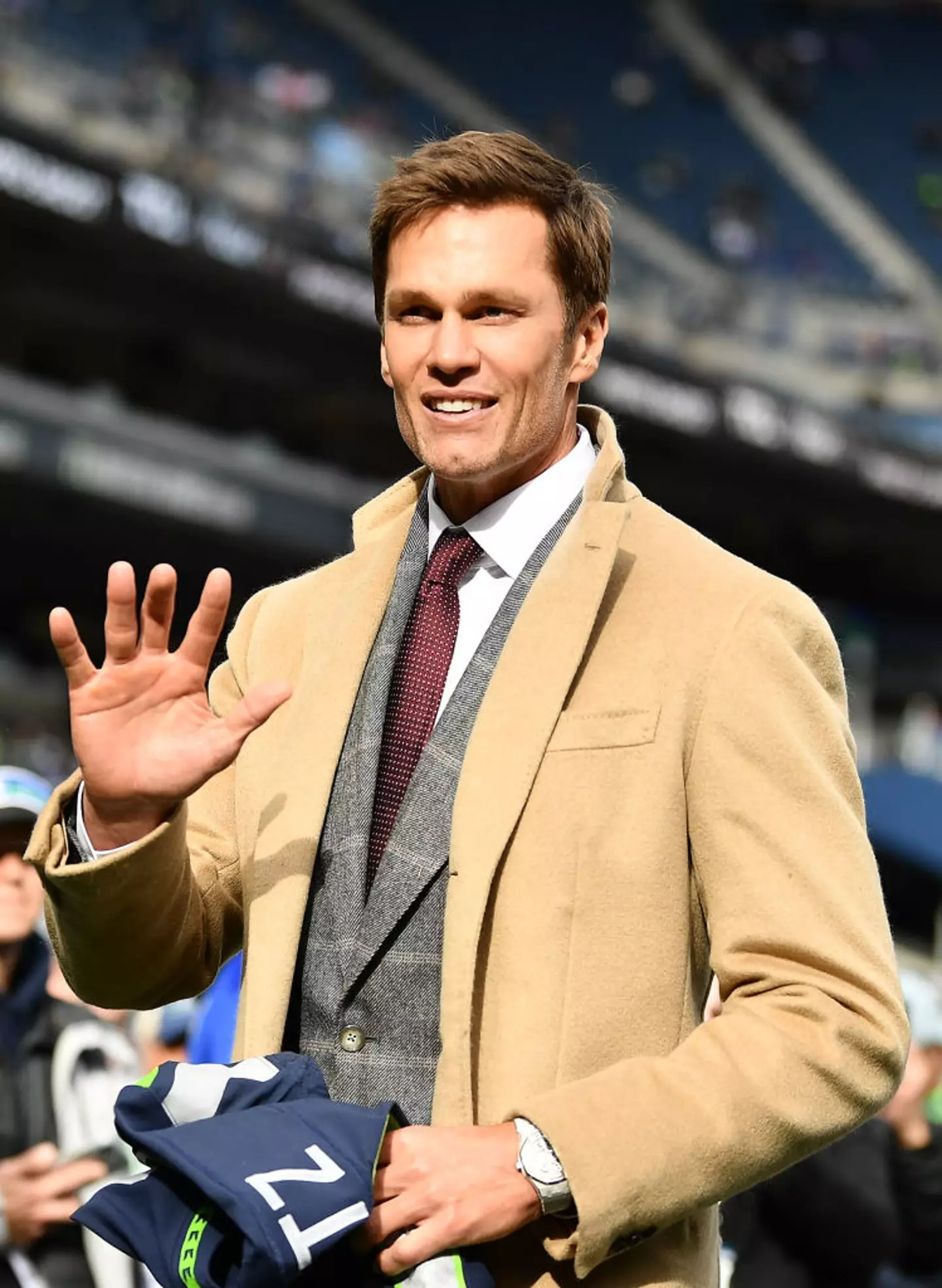
Brady has had a rocky start to his career as a commentator (Jane Gershovich/Getty Images)
Brady’s Controversial Move from NFL Star to Sports Commentator
Tom Brady’s career as a professional football player is nothing short of iconic. With seven Super Bowl titles and five MVP awards, he’s widely regarded as one of the greatest quarterbacks of all time. But since retiring from the field, Brady’s new role as a color commentator for Fox Sports has been met with mixed reviews.
The 47-year-old’s transition into broadcasting came with a whopping 10-year, $375 million contract, making headlines for being one of the most lucrative deals in sports media history. However, his commentary debut in September was less than stellar, receiving criticism from fans who expected more from the seasoned athlete.
Despite the rocky start, Brady seemed to be finding his rhythm in the following weeks—until a recent slip of the tongue changed the narrative. During the live broadcast of a Buffalo Bills vs. Seattle Seahawks game, Brady used the term “sp*z” while discussing Bills quarterback Josh Allen, igniting fury across social media and prompting calls for accountability.
The Incident: What Did Tom Brady Say?
During the commentary, Brady was analyzing Josh Allen’s playing style, comparing it to that of an unpredictable storm. In an attempt to describe Allen’s energy on the field, Brady said, “Sometimes he played like a spz, like a grade-schooler on a sugar high, but now he’s controlled the chaos.” The comment was meant to highlight Allen’s growth as a player, but the use of the word “spz” overshadowed the intended message.
The term, which is derived from “spastic,” is considered highly offensive, especially to individuals with disabilities and their families. It refers to involuntary muscle spasms, often caused by neurological disorders or brain injuries. Over time, the word was adopted as slang to describe someone who is clumsy or overly excitable. However, its use as an insult toward people with disabilities has rendered it derogatory and unacceptable in modern language.
Why Is the Term Considered Offensive?
Understanding the history of the term is crucial to grasp why it’s offensive. “Spasticity” is a medical condition involving uncontrollable muscle movements, commonly associated with cerebral palsy and other neurological disorders. In the 1980s, the term “sp*z” became popularized as a derogatory slang word, used to mock individuals with physical disabilities.
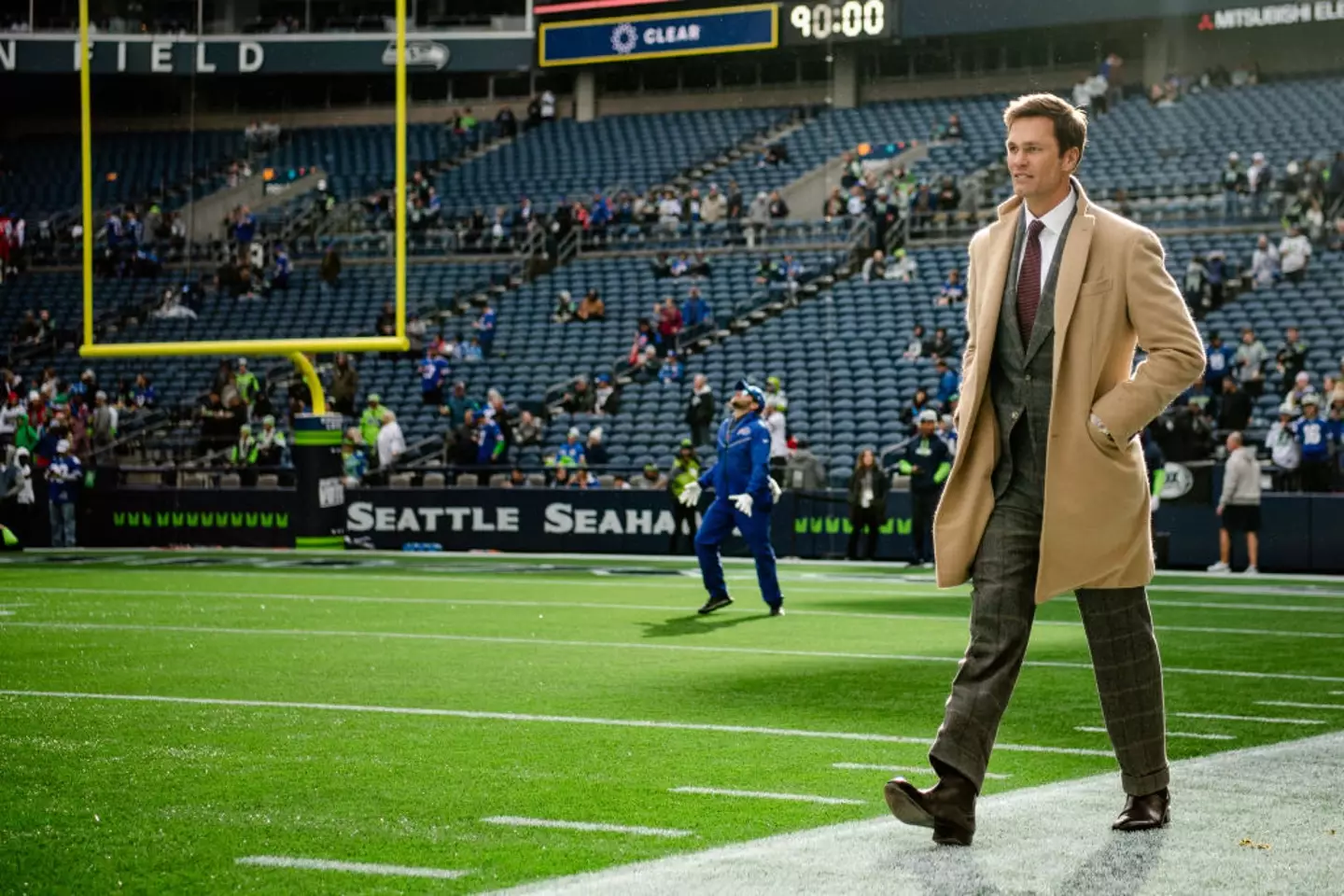
The NFL legend used a term seen as offensive by many shocked viewers (Jane Gershovich/Getty Images)
The backlash against the use of this term has grown stronger over the years, as awareness and sensitivity toward people with disabilities have increased. It’s now widely recognized as offensive in both the UK and the US, making its casual use in any context—let alone a live TV broadcast—unacceptable.
The Social Media Outcry: Viewers React to Brady’s Comment
Brady’s choice of words did not go unnoticed. Viewers were quick to react, taking to social media to express their shock and disappointment. One user on X (formerly Twitter) wrote, “Did you hear Tom Brady call Josh Allen a ‘sp*z’ in today’s game? Highly offensive to people with physical disabilities as well as their loved ones.” Another user added, “Someone’s gotta tell him he can’t say that on TV.”
The incident has led to a broader conversation about the use of ableist language in media and the responsibility of high-profile individuals to set a positive example. For someone like Brady, who has millions of fans across the globe, a misstep like this carries significant weight.
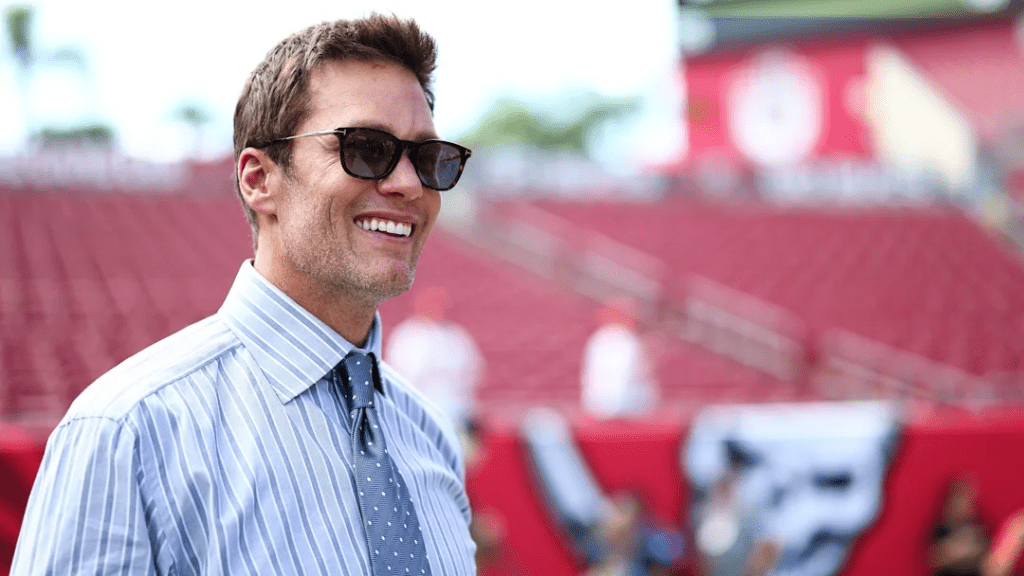
Brady Isn’t the First Celebrity to Face Backlash for Using the Term
Interestingly, Brady is not the first high-profile figure to face backlash over this particular word. Musicians Beyoncé and Lizzo both encountered criticism for using the term in their respective songs—“Heated” and “Grrrls.” After receiving backlash, both artists issued apologies and re-released the tracks with the word removed. Their responses were seen as steps toward greater sensitivity and awareness.
This precedent raises questions about how Brady and Fox Sports will handle the situation moving forward. While a formal apology has yet to be issued, many are waiting to see whether Brady will address the incident directly, as other celebrities have done in similar situations.
The Broader Implications of Brady’s Comment
The incident is more than just a misstep in a broadcast—it’s a reflection of how deeply ingrained certain words and phrases can be in everyday language, even when they carry harmful connotations. As public figures, broadcasters, and athletes continue to face scrutiny for their words, the importance of using inclusive, non-offensive language becomes clearer.
- Impact on the Disability Community: The use of ableist language on such a large platform is particularly damaging to the disability community, as it perpetuates stigma and reinforces negative stereotypes. For those living with conditions like cerebral palsy, hearing these terms used casually can feel like a direct attack.
- Role of Media and Language: Media plays a powerful role in shaping societal norms and attitudes. When public figures like Brady use offensive language, it can set back efforts to promote inclusivity and respect for marginalized groups. This incident serves as a reminder of the need for ongoing education and sensitivity training, particularly in the realm of live broadcasting.
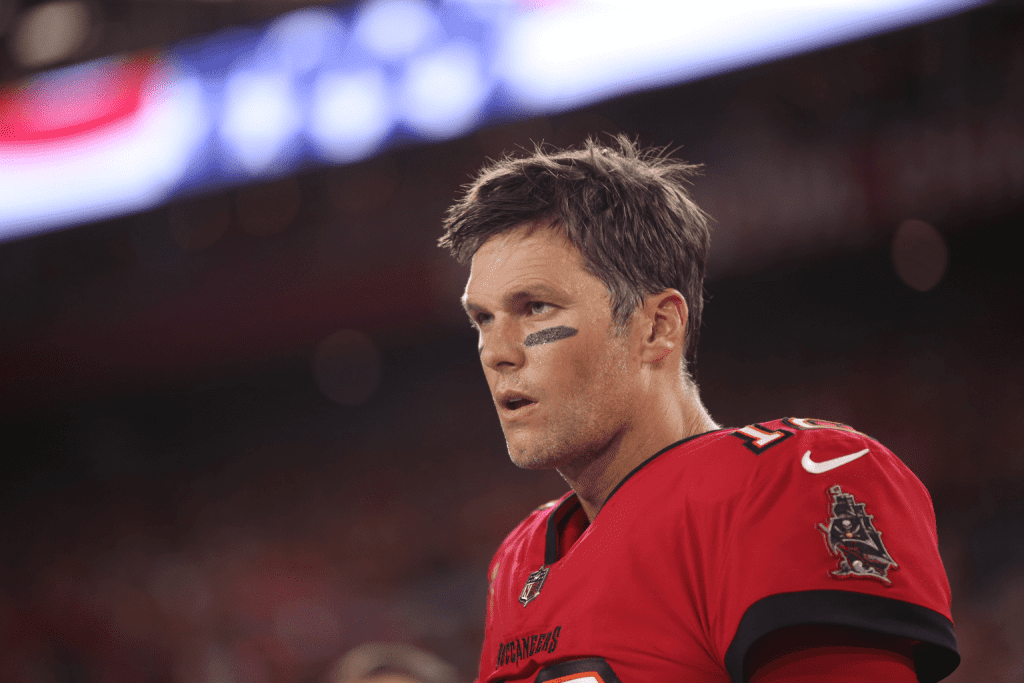
Will Tom Brady Apologize? What’s Next for the NFL Legend
As of now, Tom Brady has not publicly addressed the incident, leaving many to speculate whether an apology will be forthcoming. In an era where public figures are often held accountable for their words and actions, it’s possible that Brady will be encouraged to make amends.
- Calls for Accountability: The incident has sparked discussions about how broadcasters can better prepare commentators for live events, where off-the-cuff remarks can have significant consequences. Some have suggested that Fox Sports implement mandatory sensitivity training for their commentators to prevent similar incidents in the future.
- The Impact on Brady’s Broadcasting Career: This controversy could impact Brady’s new career as a sports commentator. While his reputation as one of the greatest quarterbacks of all time remains intact, his broadcasting credibility could take a hit if the incident isn’t addressed appropriately.
Conclusion: A Lesson in Sensitivity and Accountability
Tom Brady’s use of an offensive slur during a live broadcast has ignited a firestorm of criticism, shining a spotlight on the importance of language in media. As society becomes more aware of the impact of ableist language, it’s crucial for public figures like Brady to lead by example. Whether through a formal apology, sensitivity training, or a broader dialogue about the incident, this controversy could serve as a learning moment—not just for Brady, but for the entire broadcasting industry.
